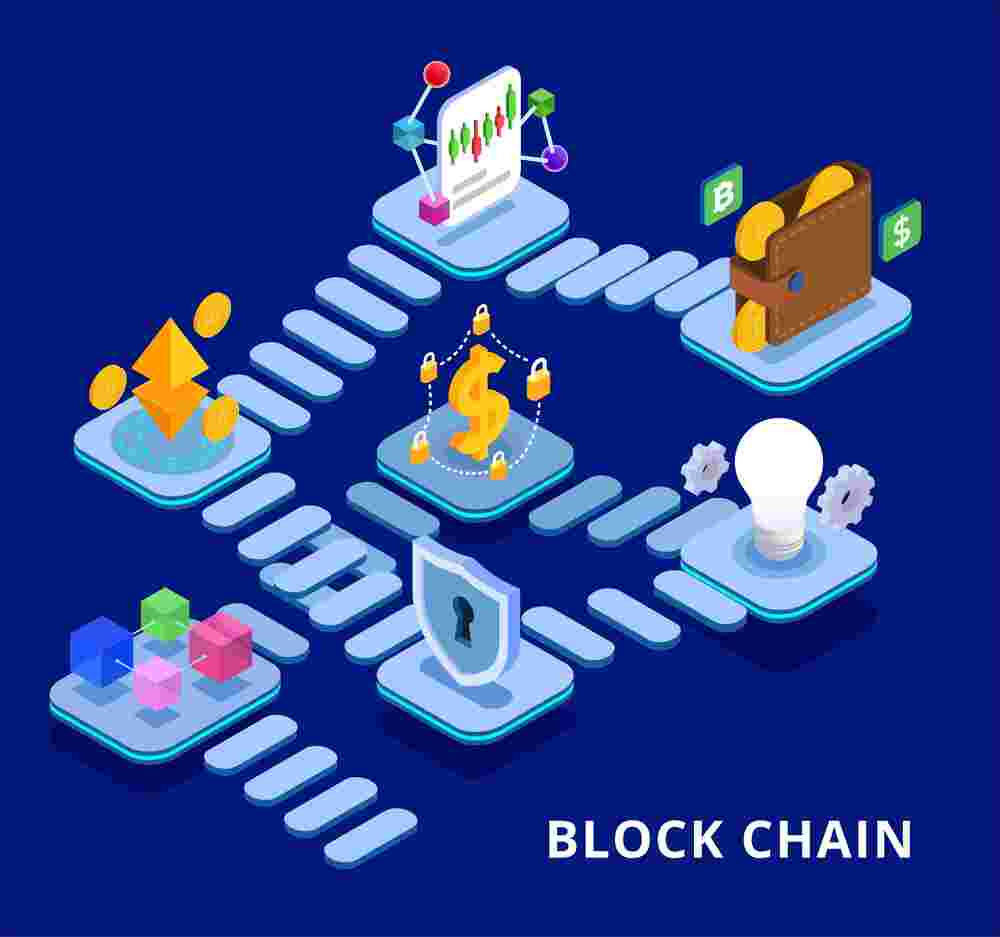Predominantly linked to cryptocurrencies in the past, Blockchain App Development has quickly become a cutting-edge business technology. From making supply chains more transparent to reducing transactional risks to defining value and ownership of NFTs (non-fungible tokens), today’s blockchain is no longer a Bitcoin database. It’s been over 10 years since its inception, and at last, it has proven to be just as disruptive as the internet. In the lines below, we will cover 7 blockchain trends leaders and businesses at large should keep a look out for.
Supply chain trust & transparency
Innovative supply chains are multi-organizational and highly complex. Before blockchain technology, access to information was siloed, creating friction between suppliers and vendors. With blockchain, data can be kept up to date in real-time, enabling streamlined access to all stakeholders involved in a process. Keeping track of pharmaceuticals, for example, can now be done via QR codes on the blockchain network. Further information about storage, expiration dates, and shipment can be accurately verified since no data on the blockchain can be tampered with.
Tokenization
Tokenization is a digital representation of anything that has value. Whether it’s a rare cryptocurrency, art, gold, or an artifact, anything that is unique can be tokenized with blockchain technology. Also deemed as NFTs, these non-fungible tokens are today’s hottest trend in the industry as investors have realized that it’s efficient to make an illiquid asset, liquid and of great real value. From an investment opportunity, NFTs are aiming to build a new industry: digital commerce.
Digital transformation of financial services
As a standalone industry, the world of finance has always been a fan of blockchain. Banking institutions can leverage the technology to provide value-added services to their clients and investors. JP Morgan, for example, currently has its very own blockchain-based platform, and UBS and Bank of America, have developed in-house blockchain teams to help speed payments and lower fees. A decentralized infrastructure could enable financial institutions to reframe global trade finance by increasing efficiency, opening new revenue streams, and lowering transactional costs.
Mainstream cryptocurrency adoption
Coinbase’s recent IPO is proof that cryptocurrencies are now widely adopted, accepted, and embraced by consumers and industries at large. Fueled by Ethereum and Bitcoin, the cryptocurrency industry now includes tens of stablecoins that can bring economic stability. Experts argue that soon enough an entire Blockchain economy will materialize, especially now, in a post-pandemic, post-war world dealing with an economic crisis.
Improved identity verification & management
We live in a privacy-deprived world and blockchain technology can restore it via identity tokenization. Putting people’s private identities under smart contracts could be the end of identity theft altogether. Furthermore, blockchain could also keep people’s private data safe; data such as COVID-19 vaccine certificates, health information, transactional records, and more. For businesses, it could provide a secure way of setting up a “digital identity”, enabling leaders to choose with whom they share their information.
Blockchain AI
For AI, it’s vital for data to be verified. With blockchain technology at the core, artificial intelligence algorithms can become a lot more accurate. It could be an opportunity for companies to uncover patterns and develop products faster and precisely without endless testing and verification. Both AI and blockchain complete each other, but for AI, it’s a chance to “democratize” it, and make it more accessible and available to businesses of all shapes and sizes.
Blockchain ERPs
Blockchain ERPs could potentially alter enterprise operations. At its core, an ERP system streamlines internal communication within an organization, constantly informing one team what the other team is doing. As ERP continues to expand into multi-organizational networks running in-house systems, blockchain could strengthen their connectivity. In the future, we anticipate that super ERP systems will eventually become NRPs or network resource planners. There’s no doubt that blockchain is here to stay. Whether consumer-based or business-based, it has shown the world that it’s more than just a disruptive technology. Sooner rather than later, all of the trends above will materialize. It’s just a matter of time when that will happen, but mostly, it depends on the openness of executives, investors, and leaders to embrace and accept it. Looking for Expert Blockchain Devleopment Company? Reach Out Maisters Today!


No comments yet